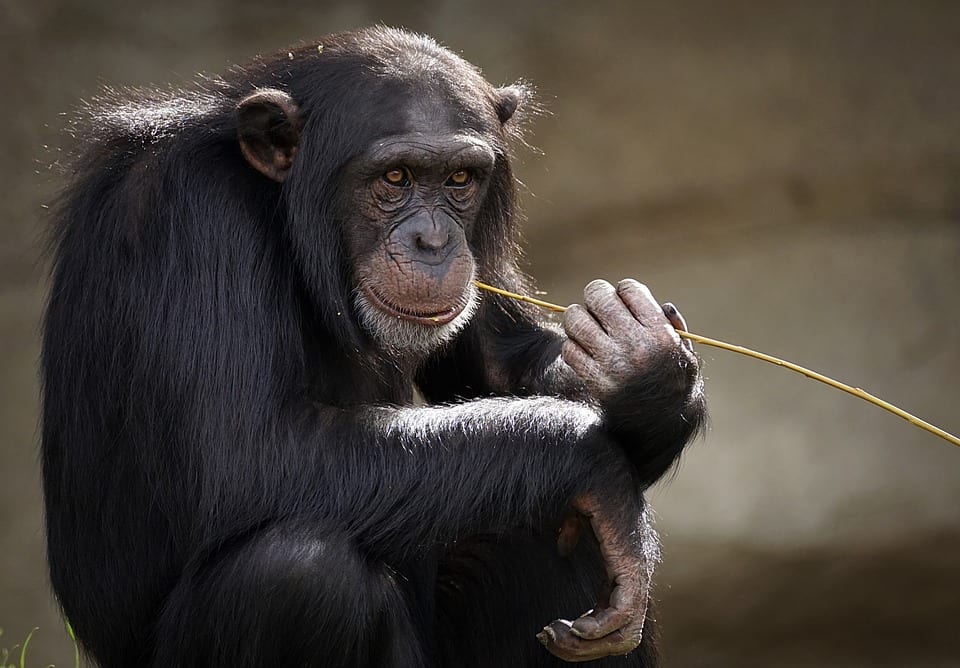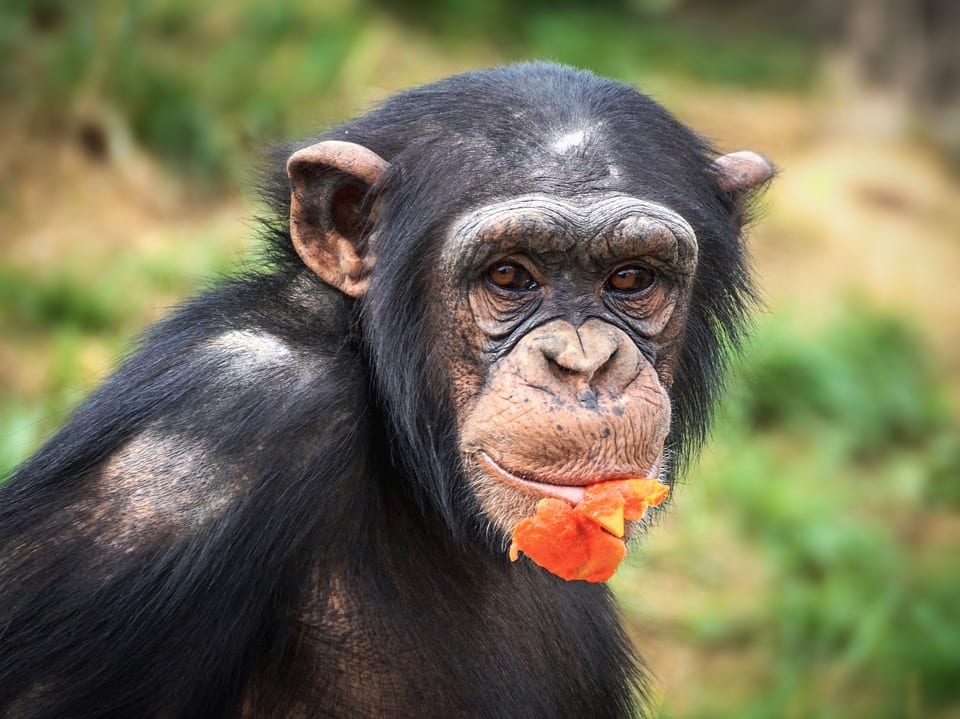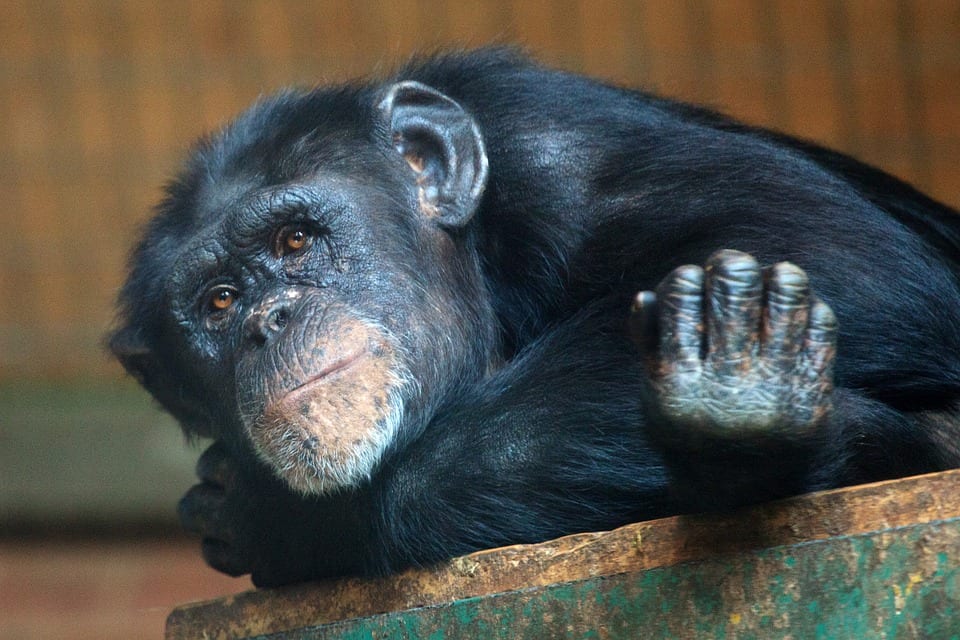We all know that chimps are related to humans, evolutionarily speaking – they get drunk on wine, they raid crops, the work as a group to steal food from other animals – but there are a few things researchers believed were reserved for more evolved hominids. I.e., us.
One of those advancements was using tools to “excavate” food buried in the ground, but thanks to a group of captive chimps, we know now that behavior is actually not only human territory.

Image Credit: Pixabay
Recent research showed that chimps can use spears to hunt and rods to fish, while wild chimps (and certain monkeys) are capable of using tools to unearth tasty treats like plant roots and tubers. Scientists wanted to study the ways these behaviors developed, so they did some tests to see if captive chimps could learn the same things.
Spoiler alert: they could.
8 out of the 10 chimps were born in captivity, and none of them had been observed using tools to dig before the experiments.

Image Credit: Pixabay
The first test was designed around fruit buried in 5 small holes in their enclosure in Norway, but the holes were left open so the monkeys could see the fruit – at first. Later, they were closed, and “tools” (tree sticks and bark shards) were left around the enclosure.
In a second experiment, the holes were covered and there were no ready-made tools left for the chimps to simply pick up.

Image Credit: Pixabay
In both experiments, the chimps used tools to dig, probe, pound, shovel, and enlarge the holes, and 8 of them used tools to unearth buried food (though they still preferred their hands). They re-used tools and preferred longer ones to shorter ones.
They also shared the digging duties, and the (literal) fruits of their labor – in one case, a chimp even stole the prize and running off with it.
So…they really are a lot like us.






